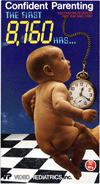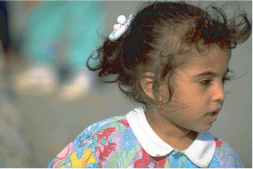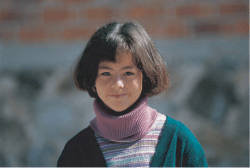|
Free Baby Care Video
|
|
produced by Doctor Kovacevic
|
|
|
*
|
|
|
|
*
|
|
|
|
|
ATTENTION ADOPTIVE PARENTS
|
| If you wish to meet Dr. Kovacevic and discuss the medical issues that might arise during the adoption process you are currently involved in or you are contemplating, or have the medical records of the child you are planning to adopt examined by him, please call our offices for an appointment. Consultation usually takes 30-45 minutes. To make this meeting more fruitful future parents are advised to have the available medical and other records (including video, or photographs if medically significant) of the child delivered to our offices approximately one week prior to the appointment. Feel free to call our offices for more information. |
| Dr. Kovacevic has had a wealth of experience in caring for children of different ethnic origins and in different countries. Also he maintains professional contacts with pediatricians from over 130 countries and has an access to the health information from those countries. |
| Dr. Kovacevic is a member of the Medical staff at the following hospitals: |
|
|
|
Hinsdale, IL
|
|
|
|
Downers Grove, IL
|
|
|
|
Maywood, IL
|
|
|
|
| For Parents Planning to Adopt |
With an increased frequency, parents from the United States wishing to adopt a child are turning to the foreign countries to fulfill their dream. It used to be Romania, then Russia and Latin and South America, and now it's China. Adoption of a child from the foreign country represents not only a complicated logistical problem, but it can be a significant medical challenge as well. While still in the process, you should discuss with a pediatrician various medical issues that may become evident during the adoption process of a child from abroad, and prepare yourself and your home for the new arrival.
| What questions you should ask when seeking medical advice about the child you intend to adopt from a foreign country: |
| First, make sure that the professional you are seeking the advice from understands the issues of ethnically (culturally) based health care. Different ethnical groups can have very distinct health issues that must be properly addressed. Secondly, try to understand beforehand the situation your adopted child will be coming from. Most of the children adopted from foreign countries have certain common issues that you should be aware of: |
| (1) Almost an invariable presence of signs of psychological abandonment in various degrees. While awaiting completion of the adoption process these children are frequently housed on crammed regular hospital wards or in oveflowing orphanages. Their experiences in the interaction with others, particularly adults, might be severely limited. Consequently, the majority of them will eventually develop some kind of self-gratifying behavior or habit in order to compensate for absence of regular human contact. Thumb (or finger) sucking, head banging or interrupted, irregular sleeping habits are but a few of the symptoms you might expect. In addition, delayed or completely absent speech development is a common occurence. |
| (2) The majority of recently adopted children from China have not shown the outright signs of malnutrition, however children adopted from Russia and other former Soviet republics, have frequently exhibited signs of malnutrition. Adoptees coming from Latin and South America are also likely to show signs of malnutrition. More commonly, the specific protein and vitamin malnutrition has been encountered in most of the children adopted from foreign countries. |
| (3) The quality and reliability of medical documentation that comes with these children varies from country to country, but should be never taken for granted. Our experiences would rate medical documentation of adopted children from China as the most, and ones coming from Russia and other former Soviet republics as the least reliable. |
| (4) Immunization records are regularly deemed as unreliable and repeating immunizations upon child's arrival to the US may be recommended. |
| (5) Common health problems that you might encounter in a potential adoptee from a foreign country are bacterial skin infections (malnutrition, inadequate hygiene), fungal infections of the skin and scalp (inadequate hygiene), poor dentition and dental problems (in older children) (hypovitaminosis, malnutrition, poor hygiene), delayed gross motor development (long term isolation and confinement in small spaces, like a crib or bassinet, a common occurrence in crammed orphanages or pediatric hospital wards) and delayed speech and social development (lack of interaction with adults, possible abuse and/or abandonment). The majority of these problems are temporary only, and can be corrected with an appropriate parental/medical care. |
| (6) International adoptees may have host of infections and your physician should be aware of them and order proper tests to diagnose them! Hepatitis B infects about 4 - 5 percent of all international adoptees. Since the chance of transmitting it to a family member is high (particularly in the first year after adoption), due attention must be paid to it. Syphilis is often diagnosed in Russian women (possibly due to overdiagnosis), and their infats are seldom, if ever, properly evaluated for this illness. Tuberculosis also represent a significant problem in adopted children and proper evaluation upon arrival to the US is of paramount importance. Finally, since many orphanages because of luck of funds practice re-using of needles, HIV infection must be also seriously considered. |
| Recommendation for health screening of adoptees from abroad |
| All adoptees should receive a general health screening upon their arrival the the US, and the following testing should be carried out: screening for hepatitis A & B, HIV, syphilis, tuberculosis and parasites. In addition, for children from China, Russia and Eastern Europe, also check for vaccine eficacy, hepatitis C, lead poisoning, thyroid disorders, and TORCH infections (toxoplasmosis, rubella, cytomegalovirus, herpes simplex and others, such as syphilis, varicella-zoster, and other viruses). |
|
|
| In the end we would like to remind you that adopting a child from a foreign country is a long, complicated process with inherited risks and disappointments. However, the reward of offering an innocent human being a new chance for life is surely worth it all. "...Whoever rescues a single soul from the children of Man, Scripture credits him as if he had saved the whole Universe". (Sanhedrin 4:5) |
|
|
|
Copyright by WebPediatrics.com©2003 * Modified Monday, April 05, 2004
|



